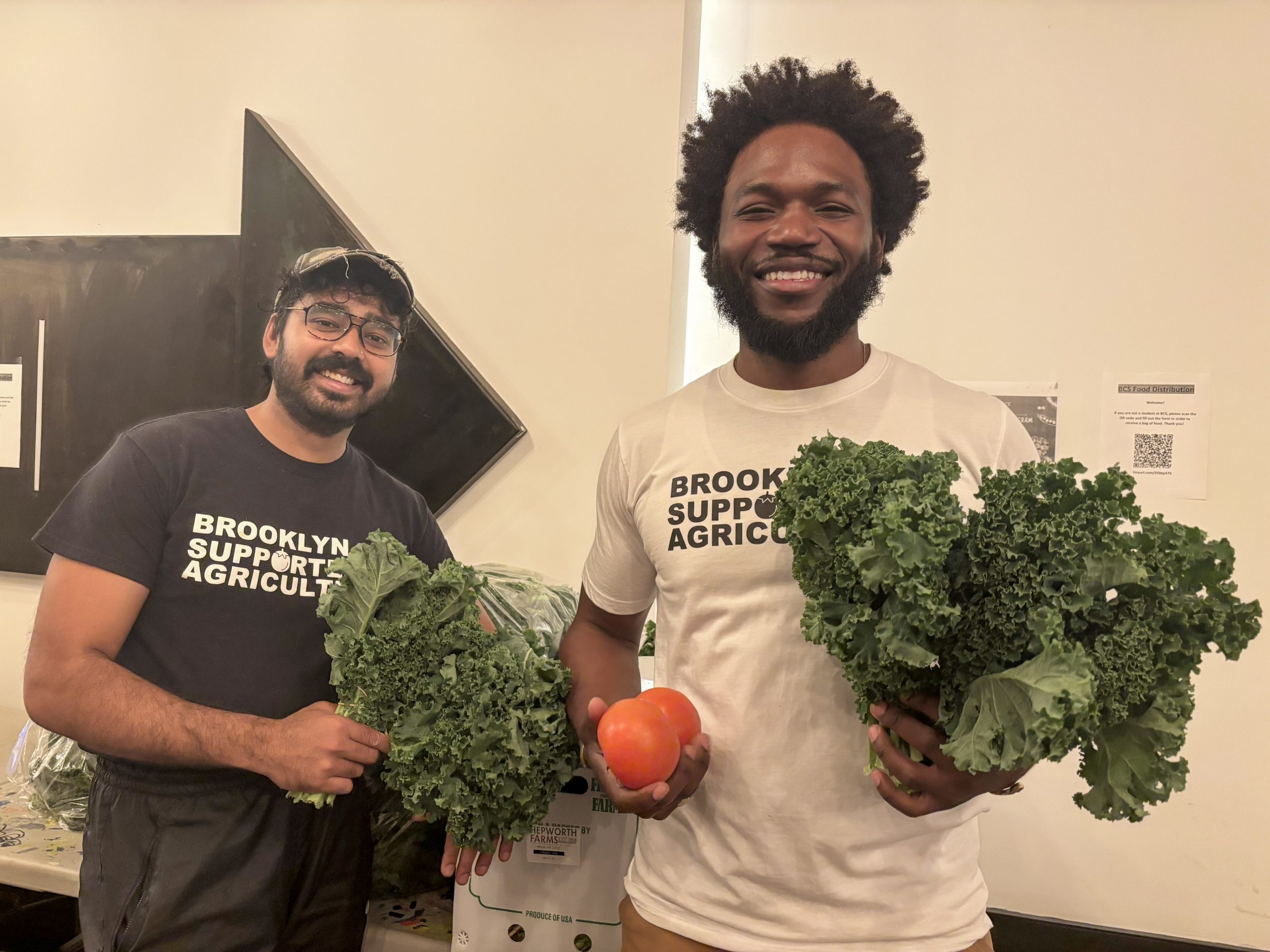Nourishing NYC: How BCS is Helping Residents Access Fresh Food
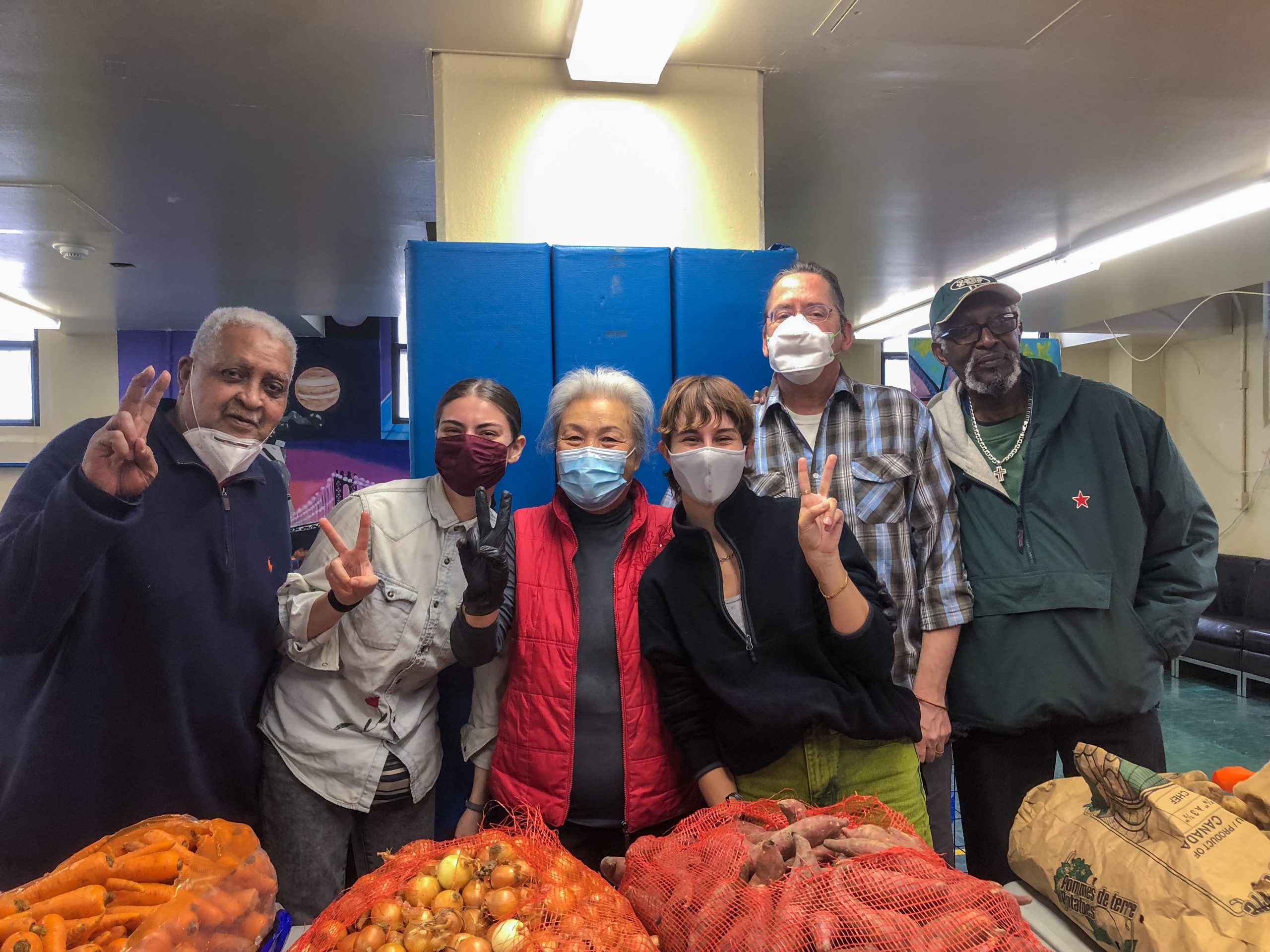
As the cost of living in New York City continues to increase exponentially, many residents struggle to make ends meet and cover basic living expenses like housing, food, healthcare, and transportation. A 2023 report by the Fund for the City of New York found that over 50 percent of the city’s working households lack the income to meet all their basic needs, and households with children are almost twice as likely to have inadequate income.
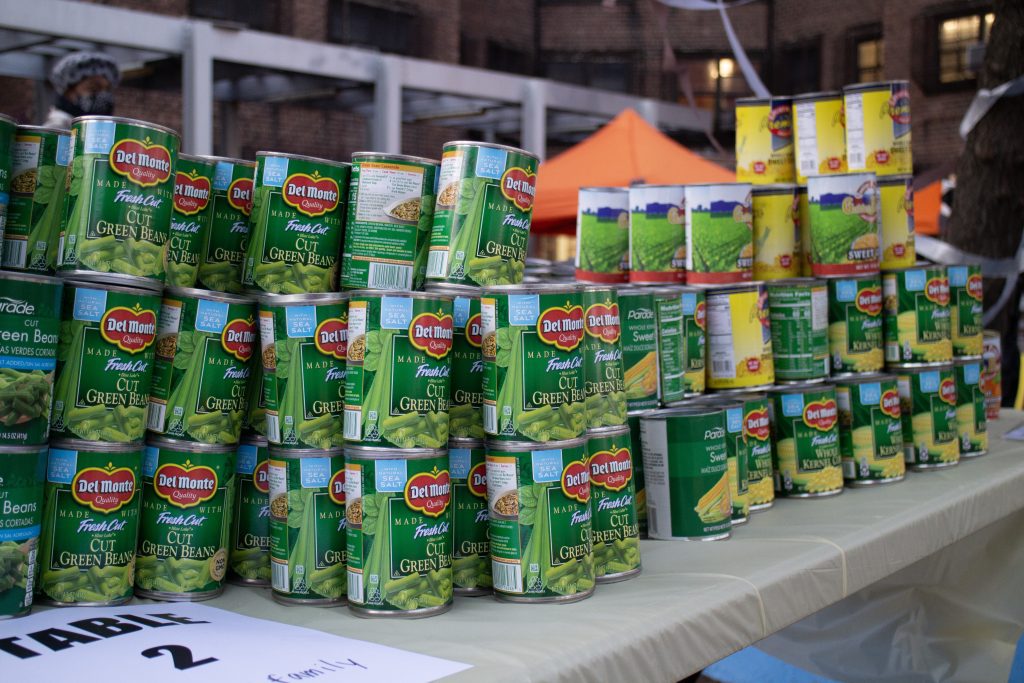
BCS’s 2020 Farragut Thanksgiving Food Distribution
According to City Harvest, food is often the first elastic expense cut down when money gets tight, with deadlined payments like utility and medical bills taking precedence in families’ budgets. Further, many working families who struggle to get by do not qualify for government support because they earn “too much” income (or, in other words, are above the poverty line). However, even if a family is not, by government definition, living in poverty, they often do not earn enough to account for hyperinflated food prices.
Ironically, many neighborhoods that seem to offer plentiful food options are actually the most food insecure. According to Dr. Melony Samuels, Executive Director and Founder of The Campaign Against Hunger, “Gentrification brings high-priced grocery stores and markets and rising food costs, leaving long-time residents with fewer places to shop in their own neighborhoods.” Some of the Brooklyn neighborhoods that experience the most food insecurity, such as East Williamsburg and Sunset Park, are also some of the fastest gentrifying. New migrants (who make up a large percentage of Sunset Park’s population), are especially vulnerable to food insecurity and often have more trouble accessing government support.
COVID-19 played a large role in increasing New York City’s food access crisis. A study by the New York Community Service Society found that food insecurity levels peaked during the pandemic but were reduced by government pandemic aid programs. However, food insecurity ultimately rose back to its previous levels by 2022, when most pandemic aid ended. In a 2022 survey conducted by Brooklyn Paper, 62 percent of Brooklynites said that it had become harder to afford groceries since the start of COVID-19.
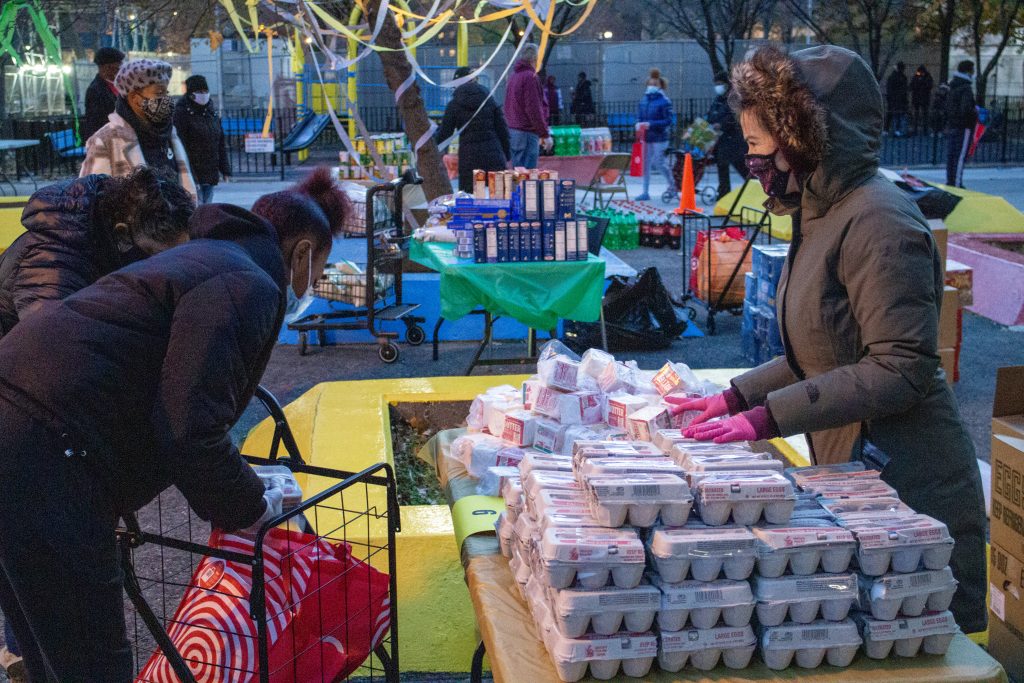
BCS volunteers help out at a food giveaway.
Jessica Tenzer, Director of BCS’s Families, Community Building and Workforce Development Division, says that, since the pandemic, BCS has dedicated more resources to alleviating food insecurity across the borough. “A lot of the communities that we work in–Brownsville, Coney Island, East New York–are food deserts,” Tenzer explains. “We started doing food distribution work through our Vaccine Equity Partnership Engagement program in Coney Island, and it went over really well.”
This fall, BCS will further expand its programming to combat food insecurity. Our new New York Food for New York Families initiative will bring locally-grown food to families at seven of our Brooklyn sites, including our Beacon program at IS 265 in Fort Greene, the BCS Education Center in Sunset Park, and various family community centers.
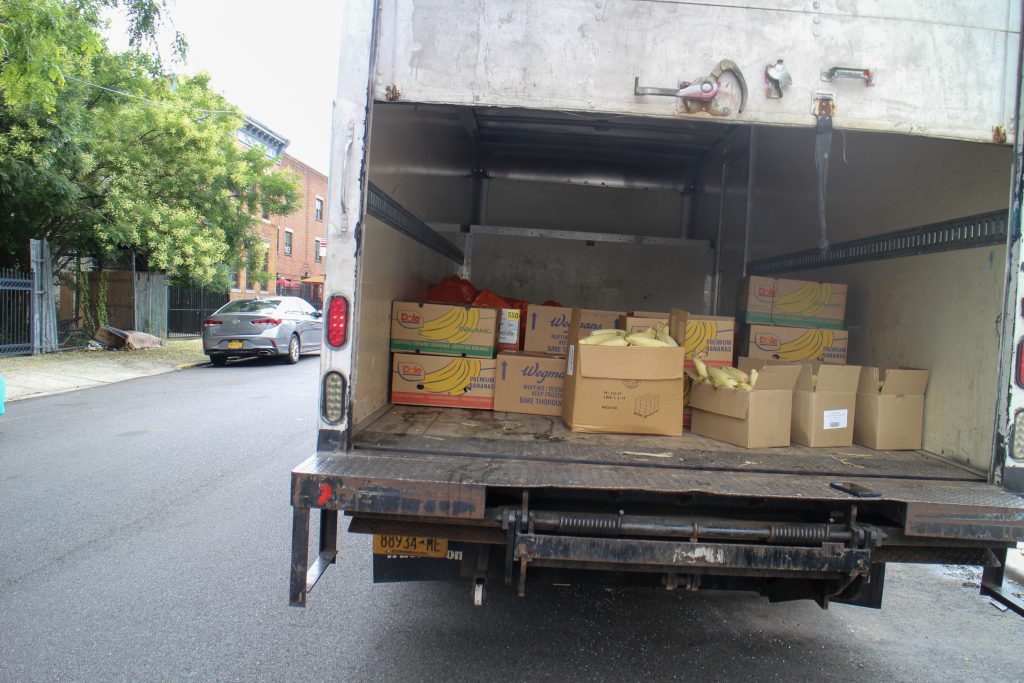
Fresh produce arrives to our Prospect Plaza Community Center.
The initiative aims to support New York agriculturists just as much as New York families by distributing produce from local BIPOC farmers and vendors. Among BCS’s partners for this initiative are Dennis Derryck of Corbin Hill Food Project and the Black Farmer Fund and Sheryll Durrant of Just Food. Running from October 2024 to June 2025, NY Food for NY Families will include 245 total distribution days across the seven sites and provide food to an estimated 700 Brooklyn families.
NY Food for NY Families will also include seven Youth Culinary Clubs to help young Brooklynites learn food preparation and cooking techniques. With this program, BCS hopes to not only provide families with fresh fruits and vegetables but also give them the nutritional education they need to create easy, healthy meals. “If you don’t grow up with food around the house, you just don’t really know how to work with it,” Tenzer says. “The thought behind the [Youth Culinary Clubs] is that the kids bring this home to their parents and then, like a chain, into their communities.”
This focus on children and young adults is especially important given the outsized impact that food insecurity has on youth. City Harvest reports that 63 percent of NYC households with children struggle to make ends meet (19 percent higher than households without children), and one in four children don’t know where their next meal will come from.
Further, children impacted by food insecurity are more at risk for developmental delays, behavior problems, and sickness. Not eating enough nutritious food can also affect students’ academic performance and lead to poorer mental health well into adulthood. By addressing this problem at its roots, NY Food for NY Families will help to prevent negative repercussions that can trickle down for generations.
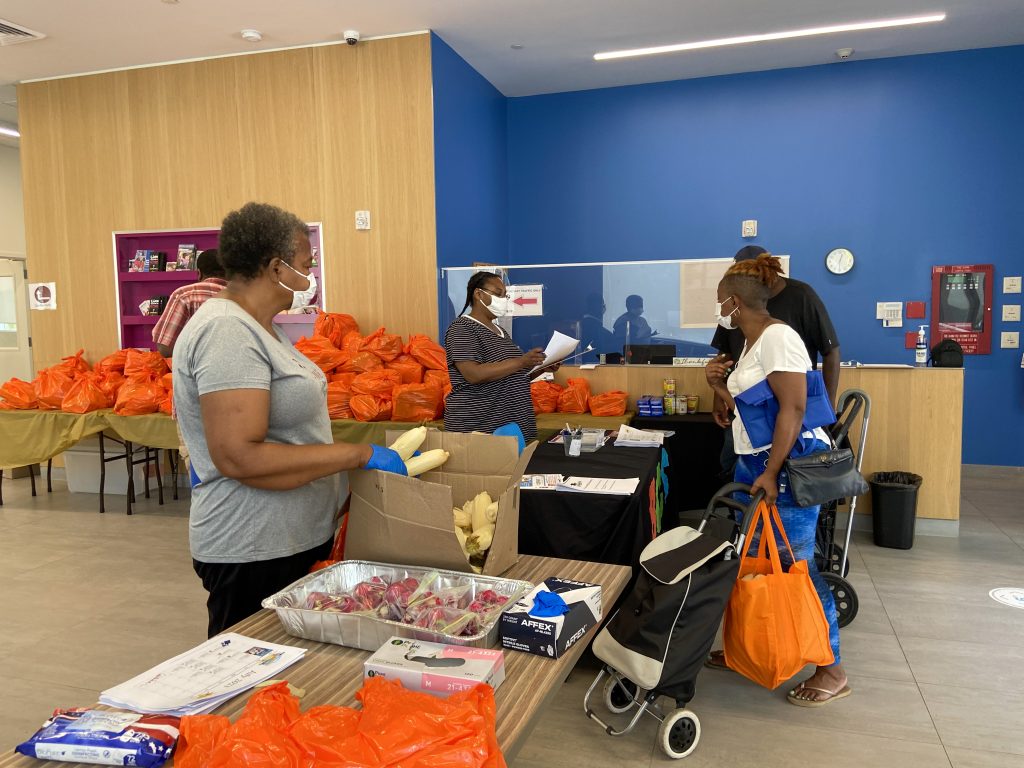
Handing out fresh food to East New York families at Prospect Plaza.
At BCS, we are so grateful to the New York State Department of Agriculture and Markets for funding this new initiative and allowing us to help shape a better future for New York families and food producers.
“It’s the first time we’ve applied for this fund, and it just felt like such a natural next step for us and a way to enrich existing programming,” Tenzer says.
While the NY Food for NY Families contract is only through 2025, Tenzer is hopeful that BCS will be able to reapply with the Department and continue the initiative over the next few years. Creating greater food access for all Brooklynites is a daunting task, but we are up for the challenge.
Top Viewed Posts
Youth Art Programs
Program Spotlight: Day Habilitation
BCS Volunteers Spring into Action for Brooklyn
Recent News

Participant Spotlight: Ann Salmon, PROS
July 16, 2025
Read More
 SUBSCRIBE
SUBSCRIBE 


